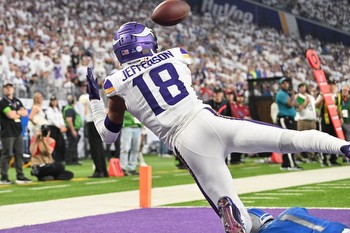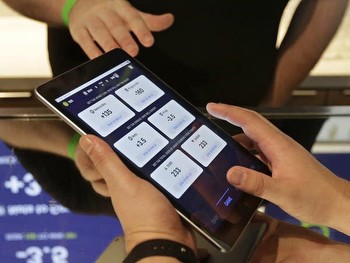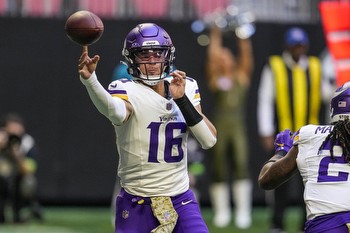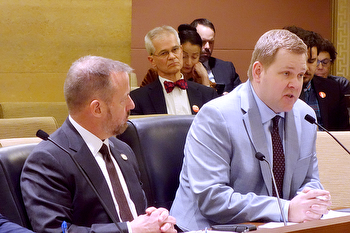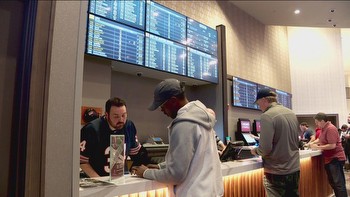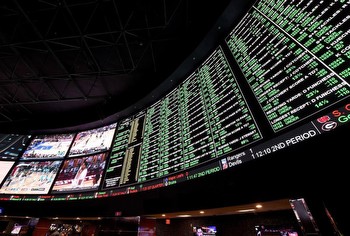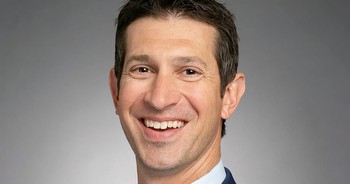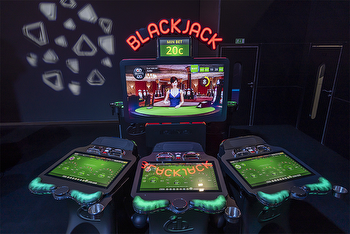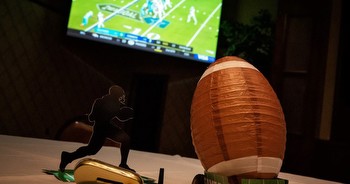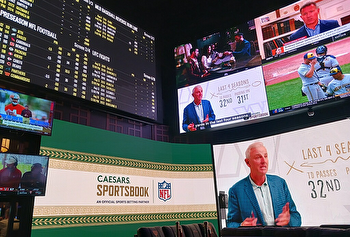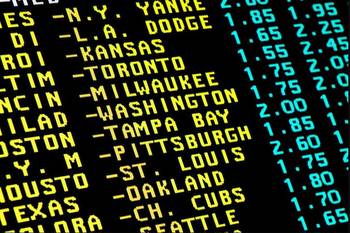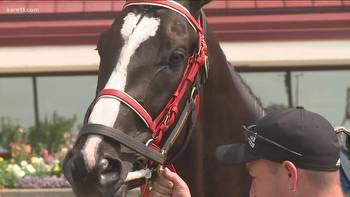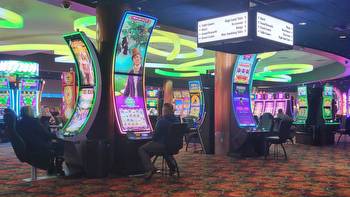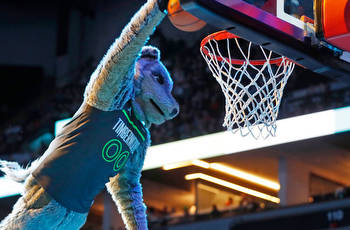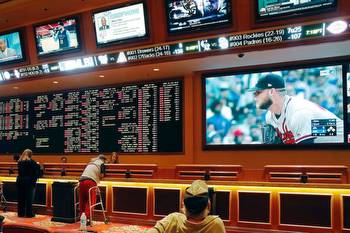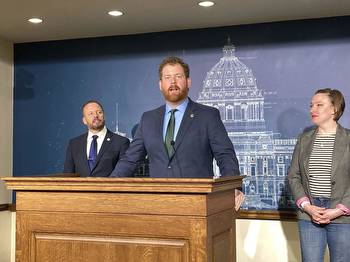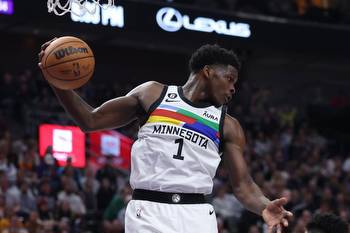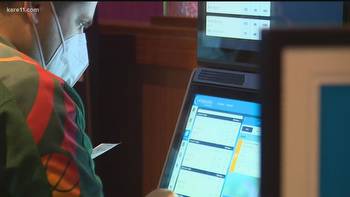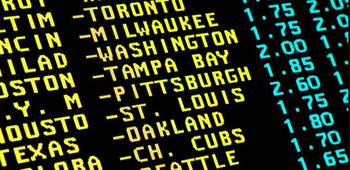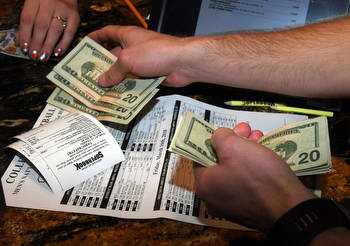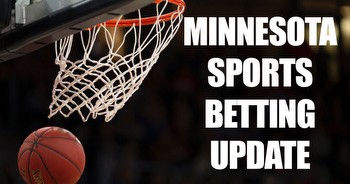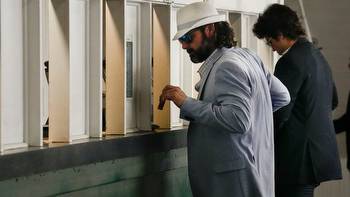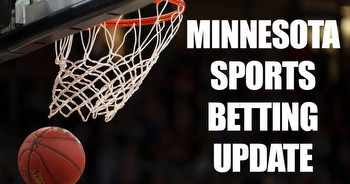DFL again proposes legalizing tribal-controlled sports betting in Minnesota
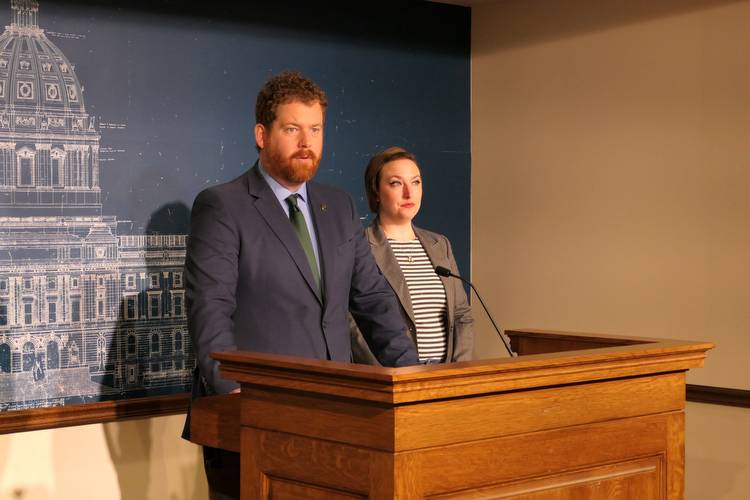
DFL lawmakers on Tuesday announced their plan to legalize sports betting in Minnesota this session by giving exclusive licenses to tribal gambling interests.
Minnesota offers a market of millions of fans rooting for and potentially betting on professional sports teams in Minnesota and across the U.S. The bill (HF2000) is similar to legislation the House passed last year, which exclusively grants sports betting licenses to the 11 tribal nations throughout Minnesota. The GOP-controlled Senate had a competing version last year, and the two chambers couldn’t work out a compromise.
Rep. Zack Stephenson, Democrat from Coon Rapids and the House bill’s chief author, said at a Tuesday press conference that tribes are the best equipped to run sports betting in Minnesota, as they’ve been the successful operators of tribal casinos for decades.
“We’re back this year and intend to finish the job,” Stephenson said. “It makes sense to partner with the organizations that have the most experience, have done it the most successfully without scandal, and are subject to the most regulation of any gambling operators in the state.”
Under the proposed legislation, the tribes would be able to create their own sportsbooks and betting operations, or they could partner with one of the major sports betting conglomerates, like FanDuel, DraftKings, Caesars or MGM.
The state’s professional teams — the Vikings, Wild, Twins, Timberwolves, Lynx and Loons — said in a statement that they are supportive of giving the tribes exclusive rights to licensing.
“The teams have a strong desire to work with the tribes as fellow stakeholders to help establish a vibrant market that features as many brands as possible. As such, the teams support tribal sports betting exclusivity, and empowering all tribes to offer statewide mobile sports betting,” the teams’ presidents and top officials said.
Last month, Sen. Jeremy Miller, R-Winona, announced his intention to propose a similar sports betting bill, but as of Tuesday he had not introduced it. He said his bill would offer licenses to the tribes, allow each of Minnesota’s professional teams to have an option to offer sports betting at their stadium or arena, and permit the state’s two horse racing tracks to have sports betting on site.
Miller at the time said he believed a sports betting bill that excluded the state’s two horse racing tracks — Canterbury Park in Shakopee and Running Aces in Columbus — wouldn’t have enough traction in the Senate.
Tribes have long been opposed to non-tribal gambling, as casinos are an important source of tribal revenue.
Unlike Miller’s proposal, the Democrats’ sports gambling plan excludes the race tracks.
“Gaming revenues produce the essential tax base tribes rely on to fund basic and essential government services for thousands of tribal members,” said Andy Platto, executive director of the Minnesota Indian Gaming Association, in a statement. “Any time the state changes the gaming landscape, Tribes must carefully consider whether such proposals strengthen or, in fact, threaten tribal sovereignty and self-determination.”
Sen. Matt Klein, Democrat from Mendota Heights and the Senate bill’s chief author, said there’s enthusiasm from both sides of the aisle for the bill, but he isn’t sure if it has enough votes to pass the upper chamber yet.
“I cannot say I have 34 votes right now,” Klein said.
The bill implements a 10% state tax on net revenues raised through mobile betting. Lawmakers didn’t have an updated revenue estimate for this year’s bill, but the Department of Revenue last year estimated the tax would generate about $17.5 million over two years.
Stephenson, who is also chief author of a bill to fully legalize recreational marijuana use, said the bill isn’t intended to be a large revenue-generator. Legalization is needed, he said, to protect consumers because many Minnesotans are currently placing bets outside the purview of state regulators.
Forty percent of the generated tax revenue would go toward addressing problem gambling — people who have lost control — and another 40% would be used to fund youth and amateur sports across the state.
The tribal nations enriched by gambling money have also been important contributors to DFL and Republican campaigns.
The Shakopee Mdewakanton Sioux, which owns and operates the Mystic Lake Casino in Prior Lake, contributed over $300,000 to DFL caucuses and candidates for the November election, according to campaign finance filings.
The Prairie Island Indian Community, which owns and operates the Treasure Island Resort & Casino, $250,000 to DFL caucuses for the November election.
Both tribal nations also gave money to Republican committees and candidates for the election, though not as much. The Shakopee Mdewakanton Sioux contributed about $100,000 to Republicans, and the Prairie Island Indian Community also contributed approximately $100,000.
The bill is scheduled to receive its first committee hearing on Wednesday.
